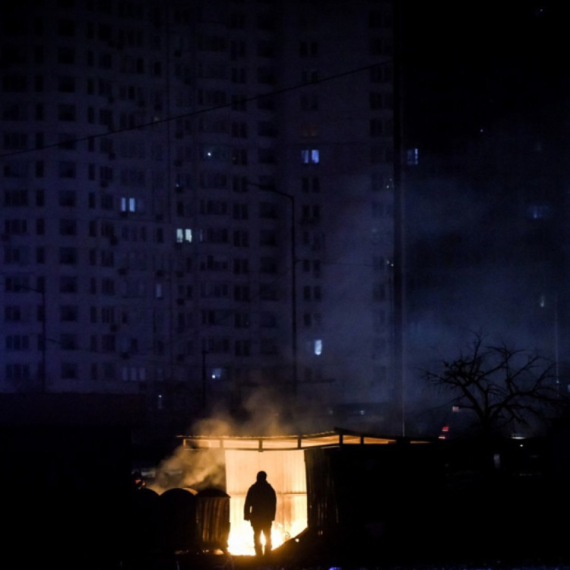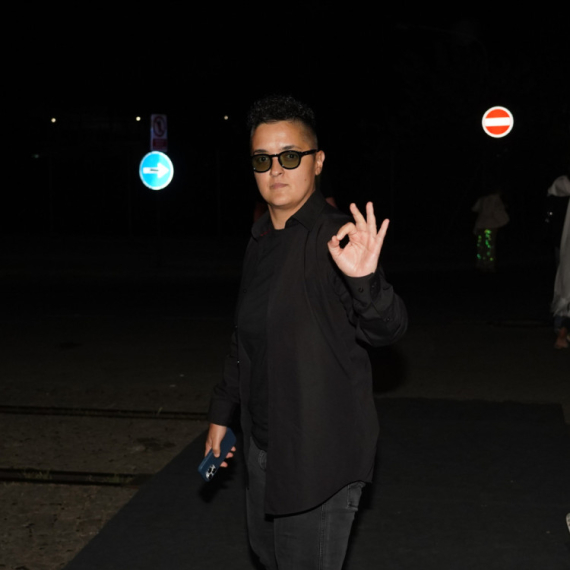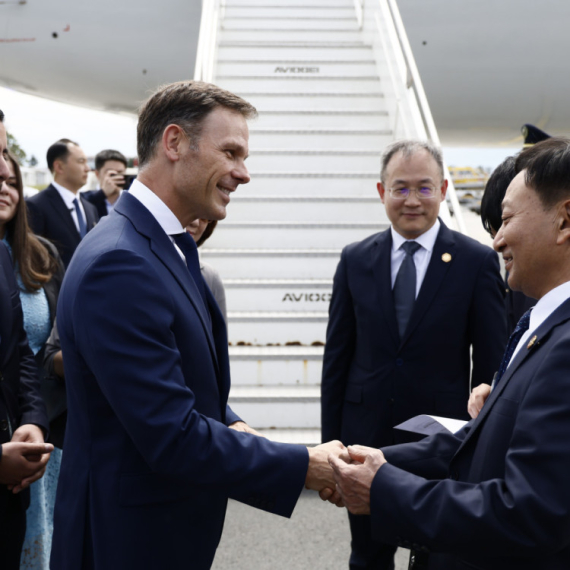Solana: Hamas missed opportunity
Havier Solana said unity government talks collapse killed hopes of ending the international sanctions on the Palestinians.
Saturday, 02.12.2006.
21:41

Solana: Hamas missed opportunity
"Some conditions have to be met in order to have full cooperation with the international community and the president (Abbas) has made tremendous efforts ... It has been impossible for the moment to get these conditions accepted (by the Hamas government) and therefore the situation (sanctions) will continue, but everybody has to know who is responsible ... It is not the president," Solana said, referring to Abbas.Hamas on Saturday rejected a call by the Palestinian Liberation Organization's Executive Committee for Prime Minister Ismail Haniyeh to resign in light of the failed talks with Fatah for forming a unity government, Israel Radio reported.
Hamas Spokesman Fawzi Barhoum said the group "could not accept such a step that contradicts [the principles of] Palestinian democracy and the election results. The PLO does not represent the Palestinian people," the radio quoted Barhoum as saying.
Earlier on Saturday, a leading member of Palestinian Authority Chairman Mahmoud Abbas' Fatah Party said early elections should be held in order to resolve the political standoff with the Islamic militant group Hamas.
Six months of failed negotiations with Hamas on forming a coalition government with Fatah have made it clear that Hamas is unwilling to share power, said Azzam al-Ahmed, the head of the Fatah bloc in parliament.
Al-Ahmed is a member of a five-member committee formed Friday to present recommendations to Abbas on what to do next to end the deadlock.
The committee is leaning toward recommending early presidential and legislative elections, Al-Ahmed said.
"The trend within this committee is to recommend early elections," he said. "This choice, the early election, will be much better than the current situation, even if Fatah lost both the presidential and parliament elections."
"We are completely paralyzed. This authority is paralyzed. Let us go to our people, and tell them the truth, and let them decide what they want," he said.
Al-Ahmed's recommendations came a day after the Palestine Liberation Organization Executive Committee called on Haniyeh to resign due to stalled talks on the formation of a Palestinian unity government.
"The executive committee asks Haniyeh to resign to pave the way for the formation of a new government," committee member Samir Ghosheh said.
Abbas announced at a press conference with U.S. Secretary of State Condoleezza Rice on Thursday that the talks with Hamas on the establishment of a government of national unity have reached a "dead end."
Abbas told top PLO officials during a special session in Ramallah on Friday that Hamas was to blame for the talks' failure. "Abbas stressed that there would be no dialogue with Hamas," said Tayseer Khaled, a member of the PLO's executive committee. "He said the dialogue ended and that Hamas bears the responsibility for the failure of the talks."
Abbas, who is also head of the PLO, headed to the Gaza Strip to update Palestinian faction leaders on the session.
Meanwhile Haniyeh, speaking in Cairo, denied that the talks have failed. Hamas has dismissed Abbas' declaration as a pressure tactic in the negotiations on forming a national unity government.
With the talks deadlocked, Abbas plans to address the Palestinian people "very soon" to discuss his next move, a top Abbas aide, Saeb Erekat, said.
Abbas has formed a committee that will meet Saturday to look at his options for the future, Erekat said.
The PA chairman has two options - fire the Hamas-led government or hold a referendum on whether to call early elections. If he dismisses the Hamas ministers, a new government he appoints would be blocked in the Hamas-dominated parliament, leading to a constitutional crisis that could also force elections.
Recent polls have shown that Abbas' Fatah Party would not have enough support to oust Hamas in new elections.
The PA chairman recently proposed a compromise formula for uniting the various Palestinian factions, which also aims to bypass the preconditions of the international community for lifting sanctions against the Palestinian Authority. However, his proposal has stalled over disagreements on which ministerial portfolios would go to each faction.
Abbas said he wants to establish a government that will bring an end to the siege on the Palestinian people, adding that "as far as I'm concerned, I don't care who sits in it."
According to the Abbas formula, the details of which have been made available to Israel and the Quartet (the United States, European Union, United Nations and Russia), Abbas will present the new government to the Palestinian parliament, as well as basic guidelines to which the ministers will commit.
Among the guidelines will be recognition of previous agreements signed between Israel and the Palestine Liberation Organization, including those stipulating the disarmament of all Palestinian factions.
In his speech at the Palestinian parliament, Abbas is expected to reiterate the government's commitment to the Oslo Accords, and its intention to continue their negotiations with Israel because "that is [its] strategic, political and realistic choice."































Komentari 0